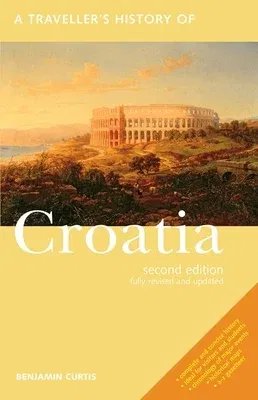George Bernard Shaw wrote that on the last day of Creation, "God desired
to crown His work," and so fashioned the Croatian coastline "out of
tears, stars, and breath." Anyone who has glimpsed that long,
mountainous, island-studded coast would surely agree that its beauty is
little short of divine. Croatia, quite simply, is blessed with some of
the most spectacular scenery on the planet and in recent years has
become a favorite tourist destination. A Traveller's History of Croatia
offers tourists and travellers an inside look at the complex roots of
Croatian history and the many influences they will see on its towns,
ports and islands. The country has been a melting-pot of Mediterranean,
Central European and Italian cultures. After a look at how its geography
and geology have shaped the nation, a fascinating story unfolds
explaining its past: why there are so many Greek and Roman
archaeological remains, the coming of Christianity, the sad tale of how
the early blooming of the Croatian state in the 9th century was thwarted
by its subsequent partition and absorption into the Venetian, Habsburg
and Ottoman Empires and the tortuous struggle for sovereignty in the
nineteenth century. The twentieth century brought new solutions in the
founding of Yugoslavia, problems with Croatian nationalism and the
horrors of invasion in World War II. Under Tito a new stability came to
the region until the battles of the 1990s, which were finally resolved
with the international recognition of an independent state in 1992. One
definite conclusion can be drawn about Croatia in the early twenty-first
century: this is the best time in all of Croatian history. The country
is after all independent, democratic, with a stable economy, and it has
established itself as one of the world's most coveted tourist
destinations.

